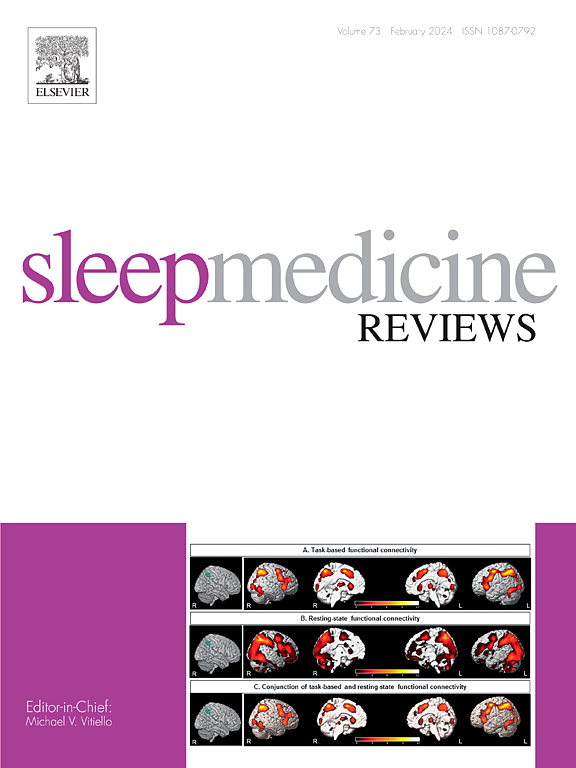Conditions of sleep restoration after smoking cessation: A systematic review
IF 9.7
1区 医学
Q1 CLINICAL NEUROLOGY
引用次数: 0
Abstract
Previous studies have highlighted the prevalence of disordered sleep in smokers, with subjective sleep complaints and alterations of sleep architecture, including a reduction in slow-wave sleep (SWS). These findings raise questions regarding the impact of smoking cessation and withdrawal on sleep.
This review aims to assess the impact of smoking cessation on sleep by taking into account objective and subjective methods of assessment. The selected articles compared both participants’ sleep before and after smoking cessation, and the sleep characteristics of patients who had relapsed compared to those who had maintained abstinence. The selected studies presented results for patients who did not receive any cessation treatment, or who received either medication-based or psychotherapeutic treatments.
In patients undergoing smoking cessation without NRT, the N1 stage was reduced in those maintaining abstinence for 6 months, while rapid eye movement (REM) sleep was reduced only in those who relapsed. No significant difference in SWS was observed between patients who maintained abstinence and those who relapsed. Regarding the use of NRT, one study observed that long-term nicotine patches, compared to short-acting patches, were associated with an increase in SWS.
Despite heterogeneous results, sleep alterations appear to persist for the first few weeks of withdrawal and predict relapses. Finally, although limited, there seems to be a restoration of sleep for patients using NRT.
戒烟后睡眠恢复的条件:一项系统综述。
以往的研究强调了吸烟者睡眠紊乱的普遍性,包括主观睡眠抱怨和睡眠结构的改变,包括慢波睡眠(SWS)的减少。这些研究结果提出了戒烟和戒断对睡眠影响的问题。本综述旨在通过考虑客观和主观评估方法,评估戒烟对睡眠的影响。所选文章比较了戒烟前后参与者的睡眠情况,以及复吸患者与保持戒烟者的睡眠特征。所选研究介绍了未接受任何戒烟治疗或接受药物治疗或心理治疗的患者的结果。在未接受非催眠药治疗的戒烟患者中,维持戒烟6个月的患者N1阶段减少,而只有复吸患者的快速眼动(REM)睡眠减少。在保持戒烟和复吸的患者中,SWS 没有明显差异。关于 NRT 的使用,一项研究观察到,与短效尼古丁贴剂相比,长期尼古丁贴剂与 SWS 的增加有关。尽管研究结果不尽相同,但睡眠改变似乎在戒断后的最初几周持续存在,并可预测复吸。最后,尽管效果有限,但使用 NRT 的患者似乎可以恢复睡眠。
本文章由计算机程序翻译,如有差异,请以英文原文为准。
求助全文
约1分钟内获得全文
求助全文
来源期刊

Sleep Medicine Reviews
医学-临床神经学
CiteScore
20.10
自引率
3.80%
发文量
107
期刊介绍:
Sleep Medicine Reviews offers global coverage of sleep disorders, exploring their origins, diagnosis, treatment, and implications for related conditions at both individual and public health levels.
Articles comprehensively review clinical information from peer-reviewed journals across various disciplines in sleep medicine, encompassing pulmonology, psychiatry, psychology, physiology, otolaryngology, pediatrics, geriatrics, cardiology, dentistry, nursing, neurology, and general medicine.
The journal features narrative reviews, systematic reviews, and editorials addressing areas of controversy, debate, and future research within the field.
 求助内容:
求助内容: 应助结果提醒方式:
应助结果提醒方式:


